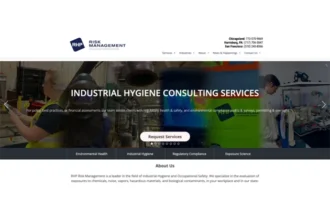Selecting the right cloud solutions is essential for your business because they shape both your security and your capacity to scale. With a wide range of service models and providers on offer, you need a setup that aligns with your operations and meets compliance standards. Every business depends on digital systems to store data, manage teams, and connect with customers, but challenges appear when those systems struggle with demand or expose weaknesses in security. Cloud services address these gaps by giving you tools to expand capacity, safeguard sensitive information, and simplify processes. The right choice supports your day-to-day operations while leaving space for growth without heavy upfront costs.
Understand the services available
When you consider moving to the cloud, you’ll notice three main service models: Infrastructure as a Service (IaaS), Platform as a Service (PaaS), and Software as a Service (SaaS). Each option provides different levels of control and responsibility. For example, IaaS gives you virtualized hardware resources, which suits businesses that want flexibility in how they configure servers and networks. PaaS offers an environment for developers to build and deploy applications without worrying about the underlying hardware. SaaS delivers ready-to-use applications, such as Microsoft 365 or Salesforce, which take away the burden of maintenance. To avoid costly mistakes, compare these models against your business goals and in-house expertise.
Evaluate the benefits
Adopting cloud solutions brings measurable gains. You can save money by reducing hardware purchases and paying only for the capacity you use. A small firm, for instance, can avoid buying expensive servers and instead scale its storage and processing power up or down according to seasonal demand. Remote access allows staff to work productively from any location, which makes recruitment easier and supports flexible working policies. Collaboration tools like shared document platforms improve teamwork across different sites, cutting delays and duplication. Reliable backup and recovery options also help you protect critical data, reducing downtime when technical failures occur.
Prioritize security and compliance
You share responsibility for security with your provider, so it’s vital to choose one that invests in robust protections. Look for strong encryption, multi-factor authentication, and detailed access controls that meet GDPR standards. For businesses handling sensitive information, using cloud storage solutions for business offers a practical way to maintain compliance while ensuring data stays secure. This approach allows you to control who can see information and monitor usage, while your provider manages infrastructure resilience. Always ask providers how they meet industry certifications and how they support incident response.
Match to your business needs
Before committing to a provider, examine your current IT systems and future plans. If you expect rapid growth, check that the provider can scale resources without disruption. Uptime guarantees will show how reliable the service is, while clear pricing models help you forecast costs without unpleasant surprises. Customer support is equally important: a responsive service desk can prevent small issues from disrupting your operations. Match your choice not only to technical requirements but also to the way your teams work every day, so the solution supports rather than complicates your business.










